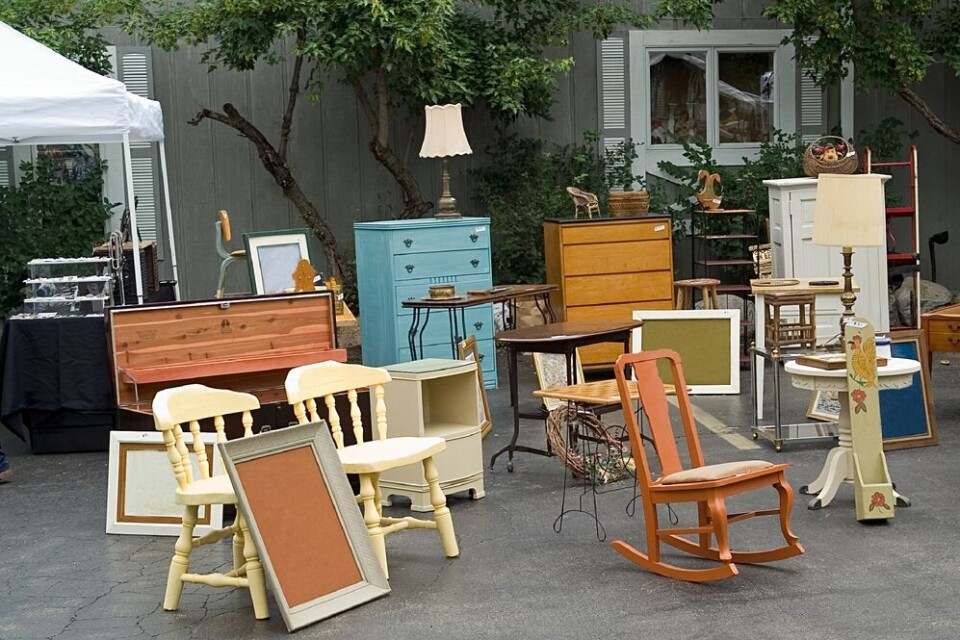-
Brexit cards: what are the rules around passport renewal and residency cards in France?
It is highly recommended that Britons in France retain a valid UK passport
-
Is compensation possible if a neighbour’s pet damages garden at French second home?
Disorderly pets can wreak havoc on gardens
-
Repairs on dry stone wall in France: Must stones be bought or can they be picked up?
You may need to consult your neighbour to repair border walls
What do I need to do to organise a vide-maison sale at my French home?
Before arranging the event you need to inform authorities and follow specific set of rules

Reader question: What are the rules to hold a vide-maison sale at your home? I regularly see hand-made signs for these. P.C.
There are indeed specific rules to follow to hold a vide-maison sale legally at your home, ie. to sell off your own unneeded items, such as if you are moving to a smaller house.
Legally speaking, this is defined as a kind of vente au déballage (literally ‘unpacking’ sale). This includes other forms of temporary and occasional sale in locations not usually used for selling, including from the backs of vehicles (car-boot sales).
Read more:Can I hold a secondhand sale at my home in France?
Exact rules can vary locally, so it is best to speak to your own mairie about its specific requirements.
However, the main formality is usually a notification of the intention to hold the sale, by registered post with receipt slip (lettre recommandée avec avis de réception), at least 15 days before.
We have seen one mairie that asks for notification two months before via a website, but this is unusual.
This should be accompanied by form Cerfa 13939*01 and a copy of an identity document (eg. passport or residency card) and proof of address (eg. a recent utility bill). It might help to explain briefly why you are holding the sale.
The form is simple to fill in and you should select to say that you are a personne physique as opposed to personne morale, the latter meaning a company, and say the items to be sold are occasion (secondhand). Ignore the section that asks about a ministerial decision. In practice, your mairie might accept you handing this in in person if it is more practical.
You should not hold more than two such sales per year but each can last for several days (up to two months maximum).
You must only sell your own personal used goods, and not items you have bought to sell on.
You should not sell food, and the sale should not encroach on public land, eg. on the pavement in front of your house.
The latter can only be done if you also obtain a separate autorisation d’occupation temporaire du domaine public, which has to be applied for three months in advance.
Mairies might require additional formalities before, during and after the sale, including compiling and filing a list of people selling and their identification details (passport number, issue date, etc) called the registre des vendeurs, as well as a signed attestation on your honour that you have not taken part in another such sale more than once in the year.
Related stories:
Airbnb and tax, €1 house: Four updates for property owners in France
Repair Cafés: a way to save broken items from the bin in France
























